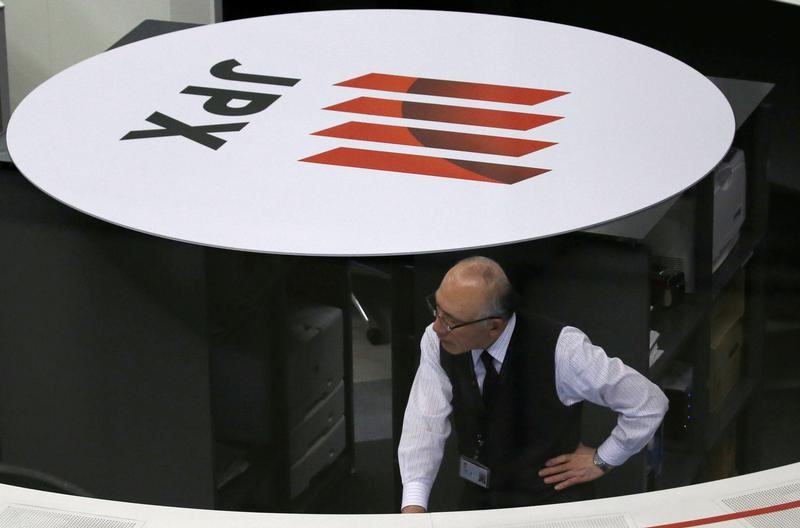Investing.com-- A Japanese stock rally is set to potentially pick up in the second half of 2024, Citi analysts said in a note, although certain conditions still needed to be met for new record highs to materialize.
Japanese stocks- particularly the benchmark Nikkei 225 and TOPIX indexes- saw a stellar rally in the first quarter of 2024, with a series of record highs. But the two have remained largely rangebound since April, amid increased uncertainty over a slowdown in the Japanese economy and the Bank of Japan’s plans for interest rates.
Still, the Nikkei and the TOPIX were trading up between 14% and 17% so far this year.
Citi analysts outlined three key conditions that needed to be met, in order for Japanese markets to resume a rally to new highs.
Firstly, they needed to decouple from their U.S. peers on a recovery in domestic demand, particularly in areas such as personal consumption and capital expenditure.
Secondly, depreciation in the yen- which is one of the worst-performing Asian currencies over the past two years- needed to end, and the USDJPY rate needed to stabilize after reaching levels last seen in 1990.
Thirdly, profit margins of Japanese companies needed to improve, with an increase in returns on equity.
Citi analysts said a recovery in personal consumption was especially important, given that it drives over 50% of the economy. First-quarter gross domestic product data released earlier this week showed a bigger-than-expected contraction in the Japanese economy largely due to slowing consumption.
Consumption is set to improve this year, especially as several major labor unions won bumper wage hikes. But it remains to be seen just how much consumption will improve, given that sticky Japanese inflation is a point of pressure.
Citi analysts said a recovery in the Japanese economy was likely to boost domestically-exposed sectors, such as retailers, food, leisure and other discretionary sectors.
These could potentially outperform the export-oriented sectors that have largely driven Japan’s stock market rally for the past two years. Japanese exporters benefited greatly from a weaker yen in recent years.
